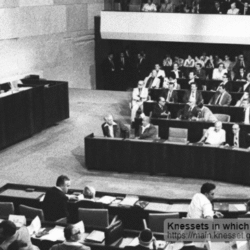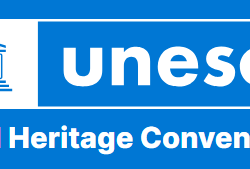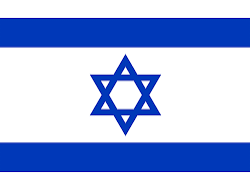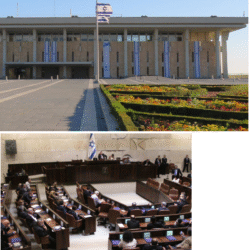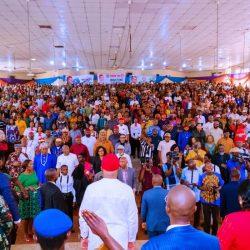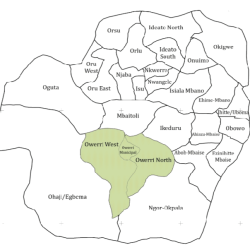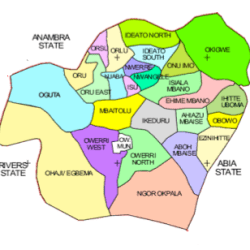The 15 International Maritime Organization (IMO) Conventions signed and adopted by Israel
The Conventions of International Maritime Organization (IMO) adopted by Israel are:
- Convention on the International Maritime Organization (IMO Convention)
- International Convention for the Safety of Life at Sea, 1974 as amended (SOLAS)
- International Convention for the Prevention of Pollution from Ships, 1973 as modified by Protocols of 1978 and 1997 (MARPOL)
- International Regulations for Preventing Collisions as Sea, 1972 (COLREG 72)
- International Convention on Load Lines 1966, (LL 1966) as amended
- International Convention on Tonnage Measurement of Ships, 1969 (TONNAGE 1969)
- International Convention of Standards of Training, Certification and Watch-keeping for Seafarers, as amended (STCW 1995)
- International Convention for Safe Containers , 1972 as amended (CSC 1972)
- Convention on the International Mobile Satellite Organization, as amended (INMARSAT)
- Convention on the International Maritime Satellite Organization, 1976 (IMSO)
- Convention on Facilitation of International Maritime Traffic,1965, as amended (FAL)
- Protocol to the International Convention on Civil Liability for Oil Pollution Damage ( CLC PROT 1992)
- Protocol to the International Convention on the Establishment of an International Fund for Compensation for Oil Pollution Damage, 1971 ( FUND PROT 92)
- Convention for the Suppression of Unlawful Acts against the Safety of Maritime Navigation (SUA 88)
- International Convention on Oil Pollution Preparedness, Response and Cooperation, 1990 as amended (OPRC 1990)

Israel and the IMO: Commitment to Maritime Safety and Environmental Protection
Israel has long stood at the crossroads of major international trade routes. With its strategic location on the Mediterranean Sea and Red Sea, Israel’s maritime interests are both national and global. In 1952, just a few years after its founding, Israel joined the International Maritime Organization (IMO), positioning itself as one of the earliest advocates for global maritime safety and environmental responsibility. Through the Israeli Administration of Shipping and Ports, the country has consistently demonstrated a strong commitment to upholding IMO conventions and fostering a sustainable, safe, and lawful maritime sector.
History of Israel’s Membership in the IMO
Early Adoption in 1952
Israel became a member of the IMO in 1952, just four years after the organization’s inception. At a time when global maritime regulations were still in their infancy, Israel recognized the importance of being part of a cohesive international maritime framework. This early membership underscored the nation’s strategic vision to integrate with global systems and ensure that its shipping industry operated at the highest safety and environmental standards.
Global Maritime Context of the Early 1950s
The 1950s marked a pivotal era for maritime governance. The aftermath of World War II emphasized the need for international cooperation in ensuring safety at sea and preventing marine pollution. Countries worldwide began aligning their maritime practices under standardized conventions, and Israel emerged as a proactive player in these initiatives.
The Role of the Israeli Administration of Shipping & Ports
Structure and Responsibilities
Operating under the Ministry of Transport and Road Safety, the Israeli Administration of Shipping and Ports (ASP) is the designated authority responsible for maritime governance in Israel. It regulates the operation of merchant ships under the Israeli flag, manages port operations, ensures maritime safety, supervises ship inspections, certifies seafarers, and oversees environmental protection in maritime zones.
Implementation of IMO Regulations
The ASP is tasked with incorporating IMO conventions into national legislation and ensuring their rigorous enforcement. This includes overseeing compliance with SOLAS (Safety of Life at Sea), MARPOL (Marine Pollution), STCW (Standards of Training, Certification, and Watchkeeping for Seafarers), and other major international conventions.
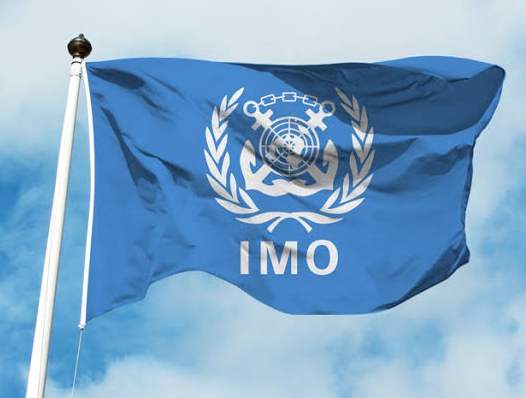
Commitment to the International Conventions
SOLAS: Safety of Life at Sea
Israel has fully adopted the SOLAS convention, widely regarded as the most important international treaty concerning the safety of merchant ships. Through port state control inspections, ship audits, and stringent crew certification processes, Israel ensures that both domestic and foreign vessels calling at its ports meet SOLAS requirements.
MARPOL: Protection of the Marine Environment
As a party to the MARPOL convention, Israel has implemented measures to prevent oil spills, manage ship-generated waste, and regulate emissions. Its ports are equipped with waste reception facilities, and the ASP mandates that vessels follow best practices for ballast water management and emission control.
Israel’s Support for Maritime Law and Freedom of Navigation
Advocacy for Lawful and Free Maritime Trade
Israel champions freedom of navigation in international waters and supports initiatives aimed at preserving open sea routes. The nation collaborates with the IMO and other global organizations to safeguard maritime trade from piracy, smuggling, and unlawful interference.
Participation in IMO Legal Committees
Israel actively contributes to IMO legal committees, advocating for the development and ratification of treaties that enhance maritime security, labor rights, and environmental conservation.
Environmental Protection Initiatives
Efforts to Reduce Marine Pollution
The Israeli ASP, in collaboration with the Ministry of Environmental Protection, leads nationwide efforts to minimize marine pollution. Israel enforces regulations on the disposal of ship waste, promotes the use of cleaner fuels, and conducts regular monitoring of marine ecosystems.
Sustainable Shipping Practices
Israel encourages the adoption of green shipping technologies, including energy-efficient vessels and shore power systems at ports. The country is also exploring incentives for shipowners to retrofit older vessels with emission-reducing technologies.
Israel’s Influence within the IMO Framework
Representation and Voting Power
While Israel is not a top-tier voting member, it maintains an influential presence within IMO deliberations. Israeli experts regularly contribute to technical committees and working groups, helping shape international maritime policy.
Regional Collaborations and Initiatives
Israel collaborates with Mediterranean and Red Sea nations on maritime issues, including search and rescue operations, environmental monitoring, and regional training programs.
Ongoing Projects and Technological Developments
Port Modernization and Digitization
Israel is investing heavily in modernizing its ports. Projects like the expansion of Haifa and Ashdod Ports include automation technologies, real-time cargo tracking, and smart logistics systems. These upgrades improve efficiency and enhance compliance with IMO standards.
Maritime Surveillance and Safety Enhancements
Advanced radar systems, vessel traffic services (VTS), and integrated coastal monitoring tools are being deployed to enhance maritime safety and security. These systems support real-time tracking, accident prevention, and rapid response to emergencies.
Treaties and Conventions Ratified by Israel
Key Ratified Conventions
Israel has ratified most major IMO conventions, including:
- SOLAS (1974 and its Protocols)
- MARPOL (Annexes I-V)
- STCW
- Load Line Convention
- International Convention on Oil Pollution Preparedness and Response (OPRC)
- Ballast Water Management Convention
Ongoing Efforts to Ratify Additional Protocols
Israel continues to evaluate and prepare for the ratification of newer instruments such as the Hong Kong Convention on ship recycling and the 2004 Anti-Fouling Systems Convention.
Maritime Education and Training in Israel
Training Institutions and Standards
Institutions like the Israel Maritime College and Israeli Nautical School offer IMO-compliant training programs for seafarers. Courses cover navigation, engineering, marine safety, and environmental protection.
International Collaboration on Maritime Training
Israel partners with global training centers and participates in IMO’s technical cooperation programs, contributing to knowledge exchange and capacity building.
Challenges and Opportunities
Geopolitical Considerations
Israel’s maritime strategy is influenced by its geopolitical context. Ensuring secure navigation in sensitive regions such as the Red Sea and Eastern Mediterranean requires robust coordination with military and international agencies.
Regional Maritime Security Challenges
The threat of piracy, smuggling, and maritime terrorism necessitates constant vigilance. Israel addresses these challenges through inter-agency coordination, international naval cooperation, and investment in maritime security infrastructure.
Case Studies
Port of Haifa Compliance with IMO Standards
Haifa Port is a model of compliance with IMO standards, particularly in safety, waste management, and environmental protection. It hosts LNG bunkering facilities, green port technologies, and efficient logistics networks.
Israeli Initiatives in Oil Spill Response and Contingency Planning
Israel maintains a National Contingency Plan for Marine Pollution Incidents, supported by modern equipment, trained personnel, and international cooperation mechanisms for quick response to oil spills.
International Partnerships
Collaboration with Neighboring Countries
Despite regional tensions, Israel has engaged in maritime cooperation with countries like Cyprus, Greece, and Egypt on marine safety, pollution control, and joint training exercises.
Engagement in IMO Working Groups and Conferences
Israel participates in IMO conferences and technical workshops, ensuring its maritime policies are aligned with global standards and contributing to the evolution of international maritime law.
Future Outlook
Strategic Goals for IMO Engagement
Israel aims to deepen its integration into IMO structures by expanding its representation and ratifying remaining conventions. The country also seeks to leverage its technological edge to contribute to global maritime innovation.
Vision for Eco-Friendly Maritime Leadership
Looking ahead, Israel is focused on becoming a regional leader in sustainable maritime practices. This includes investment in renewable energy-powered ports, electric ferries, and AI-driven logistics systems.
Israel’s longstanding membership in the IMO and its active role in implementing international maritime standards reflect a deep commitment to the safety, legality, and sustainability of global maritime trade. Through its forward-thinking policies, advanced port infrastructure, and strategic international partnerships, Israel is poised to continue its leadership in promoting environmentally responsible and safe navigation in the years to come.
FAQs
What year did Israel join the IMO?
Israel joined the International Maritime Organization in 1952, making it one of the earliest members.
What are SOLAS and MARPOL, and why are they important?
SOLAS ensures safety of life at sea by setting safety standards for ship construction and operation. MARPOL targets the prevention of marine pollution from ships through strict regulations on waste and emissions.
How does Israel contribute to marine environmental protection?
Israel implements MARPOL conventions, invests in green port infrastructure, enforces ballast water management, and maintains national oil spill response protocols.
Which international treaties has Israel ratified through the IMO?
Israel has ratified major treaties including SOLAS, MARPOL, STCW, OPRC, and is working towards ratifying others like the Hong Kong Convention.
What is the Israeli Administration of Shipping & Ports responsible for?
The ASP oversees maritime safety, port operations, ship inspections, environmental protection, and seafarer certification in accordance with international standards.
